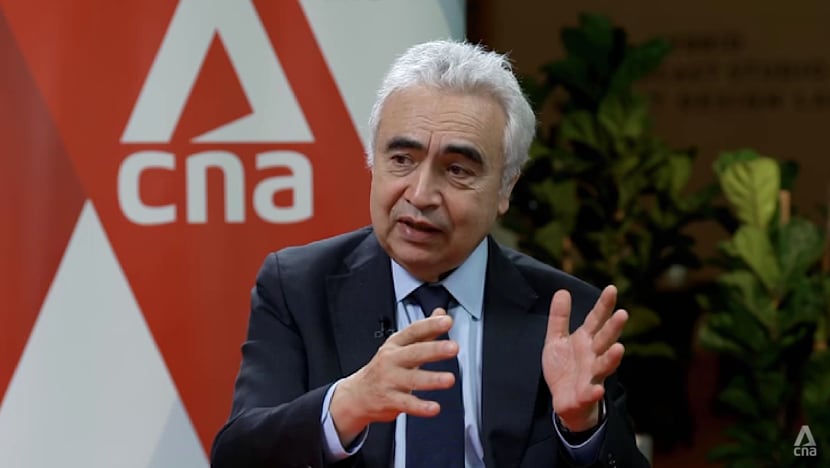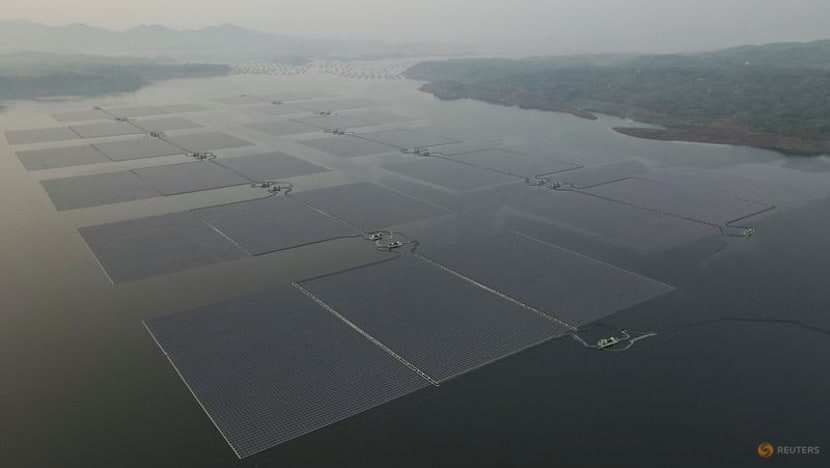Climate action losing ‘political importance’ as governments prioritise rising costs and security worries: IEA
The push for climate action and the transition to cleaner energy has waned, even as the impacts of climate change intensify, said the agency’s executive director Fatih Birol.

Climate change is losing political traction as governments grapple with competing priorities such as security concerns and rising living costs, warned International Energy Agency (IEA) executive director Fatih Birol.

This audio is generated by an AI tool.
SINGAPORE: Climate action is losing political traction as governments grapple with competing priorities such as security concerns and rising living costs, warned International Energy Agency (IEA) executive director Fatih Birol.
He said the global push for climate action and the transition to cleaner energy has slipped down policy agendas, even as the effects of climate change “are becoming more and more obvious.”
Birol noted that 2024 was the hottest year on record, with wildfires, droughts and heatwaves increasing in both frequency and intensity.
Yet, the “political importance given to climate change is sliding down”, he cautioned, describing the widening gap as “a very dangerous conflict”.
“Governments have other concerns and headaches, and they give these immediate concerns priority such as defence, security (and) affordability,” he added.
Birol was speaking to CNA’s Asia Now on Monday (Oct 27) on the sidelines of the Singapore International Energy Week (SIEW).
The summit brings together professionals, policymakers and analysts to share best practices within the global energy landscape.
OIL SUPPLY GLUT
Birol also touched on how the oil market faces an even bigger surplus next year.
Global oil supply is projected to exceed demand by almost 4 million barrels a day next year, according to the IEA. This anticipated glut would be equal to almost 4 per cent of world demand.
The Organization of the Petroleum Exporting Countries and its allies, collectively known as OPEC+, are ramping up crude output after agreeing to unwind production cuts faster than originally planned.
Birol said these oil producing nations have their own priorities, adding: “They may prefer to have a policy to have a higher market share in the energy mix than higher revenues.”
Beyond OPEC+, supply growth next year will also come from outside producers such as the “American quintet” – the United States, Canada, Brazil, Argentina and Guyana, said Birol.
“Oil demand is getting weaker and weaker because the Chinese economy is changing its nature from being a heavy industry-based economy to a lighter economy,” he explained.
“So, as a result of that, we see a surplus in the markets.”
Oil prices are expected to moderate amid the ample supply, despite geopolitical tensions. Current prices are hovering in the mid-US$60s per barrel.

NEW ERA FOR NUCLEAR ENERGY
In his interview with CNA, Birol discussed Asia’s progress towards the global goal of tripling renewable energy capacity by 2030.
While renewable power generation continues to grow strongly worldwide, parts of Asia are lagging due to gaps in financing, policy frameworks and infrastructure.
He urged governments in the region to fast-track clean energy project approvals by cutting red tape and easing regulations, highlighting the vast potential of solar, wind and geothermal energy.
Birol noted that electricity demand is set to grow significantly in the region, driven by the expansion of data centres, increasing adoption of electric vehicles and rising use of air conditioning.
He also called on governments to seriously consider the role of nuclear power – the world’s second-largest source of low-emissions electricity after hydropower, adding: “Nuclear power is making a comeback around the world.”

















